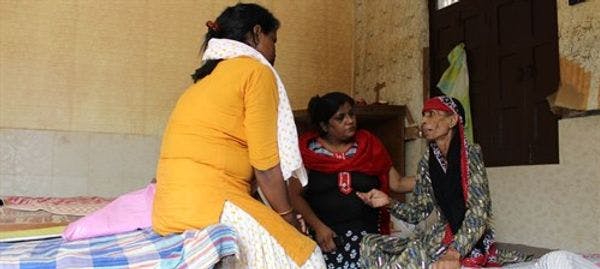Too little, too late: Why palliative care is vastly inadequate in India
Twenty eight-year-old Divya Devi placed her hands on her bloated belly, closed her eyes, and leaned her head back against a wall. A black hairband held her thinning hair together. She breathed heavily through her mouth and looked exhausted. Devi was one of the many patients biding their time in the packed waiting room of the palliative care center inside the All India Institute of Medical Sciences in New Delhi on that September morning. Those who could, sat. The others lay down. Almost all of them were terminally ill with cancer. Devi had breast cancer that had spread into her liver.
Devi’s husband, Tarun Kathuria, was standing in a corner. A few days before this visit, Devi’s oncologist told Kathuria that Devi might live just for a week or two and referred her to the palliative care center. That morning, the couple left their two-year-old daughter, Riddhima, with neighbours in Dwarka in west Delhi before coming to the centre.
Like Devi, most patients are referred for palliative care when all treatments fail and the patient is terminally ill. “That’s a wrong approach,” said Sachidanand Jee Bharati, assistant professor of palliative medicine at AIIMS.
Click here to read the full article.
Keep up-to-date with drug policy developments by subscribing to the IDPC Monthly Alert.
